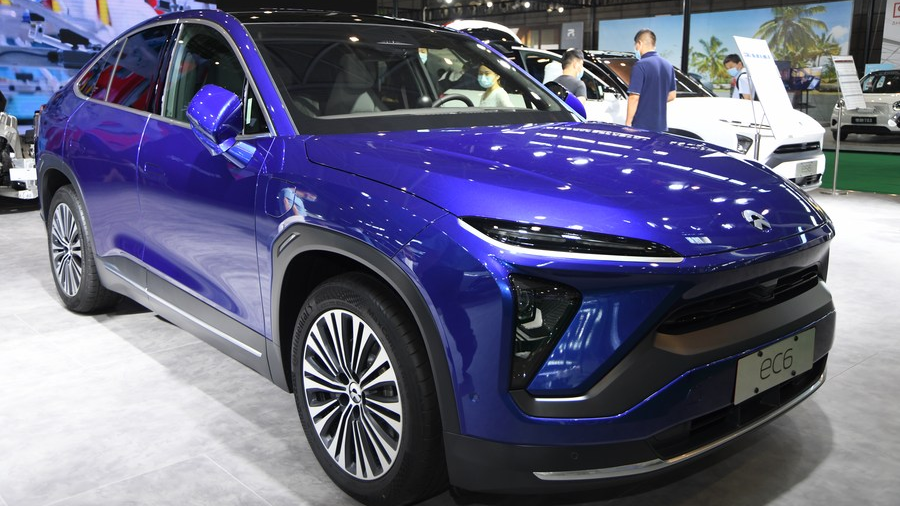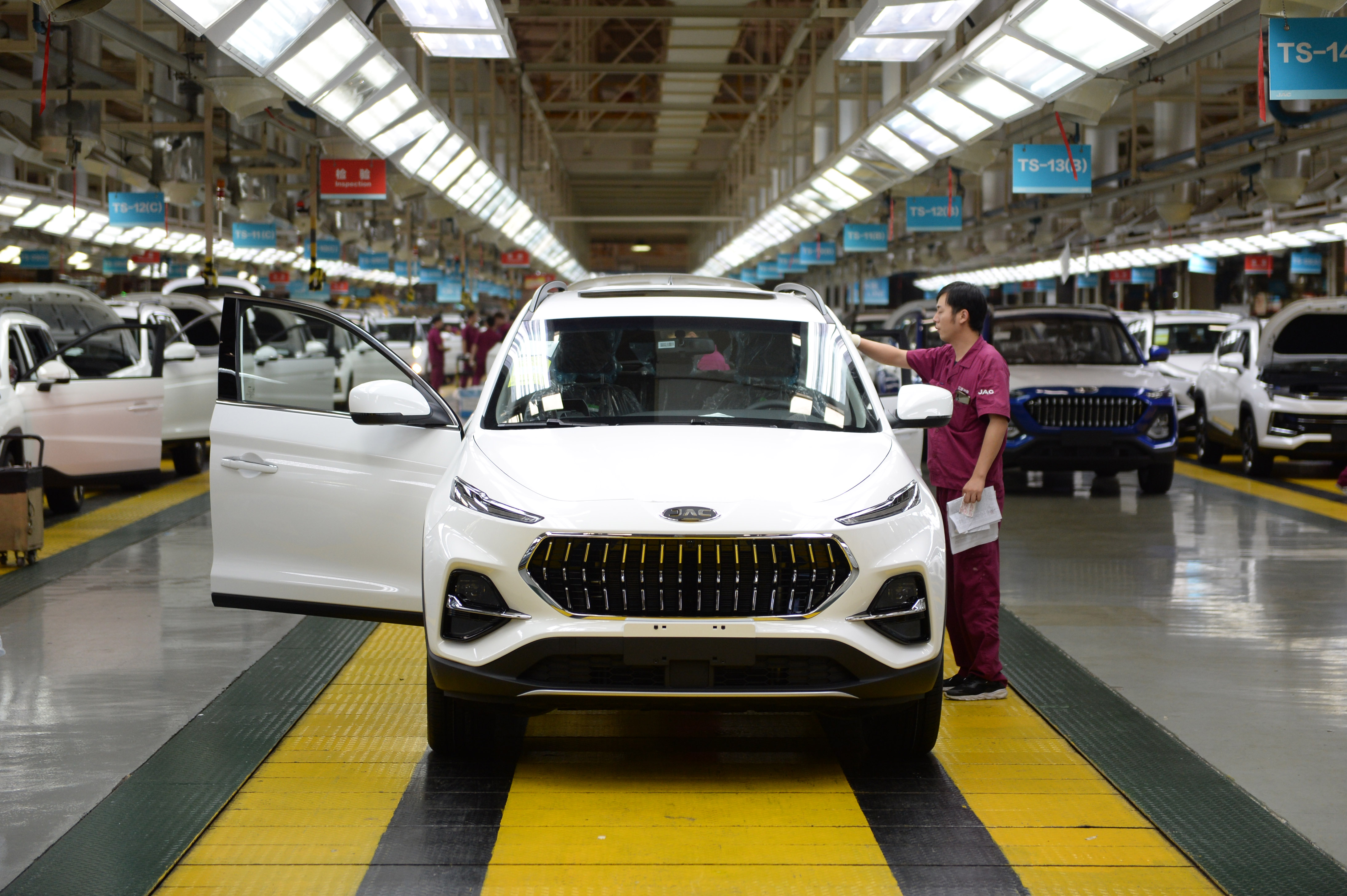
An electric vehicle at the 2020 International (Hefei) Energy Conservation and New Energy Automobile Exhibition in Hefei, east China's Anhui Province, September 4, 2020. /Xinhua
An electric vehicle at the 2020 International (Hefei) Energy Conservation and New Energy Automobile Exhibition in Hefei, east China's Anhui Province, September 4, 2020. /Xinhua
Editor's note: Dr. John Gong is a professor at the University of International Business and Economics and a research fellow at the Academy of China Open Economy Studies at the University of International Business and Economics (UIBE). The article reflects the author's views, and not necessarily those of CGTN.
It is a pleasant surprise that U.S. climate envoy John Kerry's Shanghai visit a week ago resulted in a joint Sino-U.S. statement, which is something we haven't seen for a long time since Donald Trump's trade war. And against that backdrop, President Xi showed up at Joe Biden's Earth Day summit, where more than three dozen heads of state convened virtually to assert one after another their climate commitment goal in their respective countries.
Biden pledges to reduce greenhouse gas emissions by 50 to 52 percent by 2030 compared with 2005 levels, while President Xi reiterated China's goal to peak emissions before 2030 and achieve carbon neutrality before 2060. Specifically on coal consumption, President Xi said China might "phase it down"during its 15th Five-Year Plan, which runs from 2025 through 2030.
Like the United States, the bulk of the emissions reductions in China would be coming from the electric utility and the transportation sector. A recent report from the University of Maryland predicts that the electricity sector reduction via phasing out coal-fired power plants would account for 28 percent of overall reductions in the U.S., and tightening up vehicle emission standards and electrification of the transportation industry would contribute another 11 percent of reductions. In China's case, there is also significant additional room for reduction in the manufacturing sector, as China has a much larger manufacturing component in its GDP compared to the U.S.
That is all good news. But there is one issue pertaining to both countries' transportation sectors that I believe will make a significant impact on the global climate cause. That is about the vehicles running on streets in both countries.

A newly assembled car at the plant of Anhui Jianghuai Automobile Group Corp., Ltd. in Hefei, east China's Anhui Province, June 19, 2020. /Xinhua
A newly assembled car at the plant of Anhui Jianghuai Automobile Group Corp., Ltd. in Hefei, east China's Anhui Province, June 19, 2020. /Xinhua
Yes, we need to electrify these vehicles with power coming from renewable energy sources. But the kinds of vehicles currently running in both countries are climate busters. Having lived in both countries for a long time, I believe both peoples' car preferences are very similar, unlike those in Europe and Japan. Chinese and Americans prefer big, comfortable gas guzzlers. In China, sales of SUVs are almost as much as sedans. And even these sedans are large A-class or above cars, for example, the cultish Audi A6L. But in Europe, the best selling cars are mostly supermini hatchbacks, some of which are even powered by 1.0 liter three-cylinder engines. In Japan, they even have a class of Kei cars that are really small in size and are extremely fuel-efficient.
In America, it is even worse. Not only do they have hordes of SUVs around, they also have those eight-cylinder 5-liter monster pickup trucks ruling the highway. Let me name the shameful top 10 best-selling list in the United States in 2020: five pickup trucks including Ford F-series, Chevy Silverado, Ram Pickup, GMC Sierra and Toyota Tacoma; three SUVs including Toyota RAV4, Honda CR-V and Chevy Equinox; one B-class sedan Toyota Camry; and finally one A-class subcompact Honda Civic that is at the 8th place. When the people driving these vehicles start talking about combating climate change, my response is, "Give me a break!" This is like the world's most famous environmentalist, former U.S. Vice President Al Gore, preaching on environmentalism while living in a 4,000-square-foot completely air-conditioned mansion.
There must be some policy instruments by both governments to discourage people from buying these kinds of vehicles. Gasoline taxes, which are actually high in both countries, do not appear to have worked. I propose a progressive tax scheme based on vehicle size and horsepower. Currently in China it is based on the engine displacement level, which the auto industry was able to get around pretty much with the turbo engine gimmick. It is time to drive these monsters off the road!
I am about to buy a car in the next six months. And my little pledge on this Earth Day is to buy a little supermini.
(If you want to contribute and have specific expertise, please contact us at opinions@cgtn.com.)

